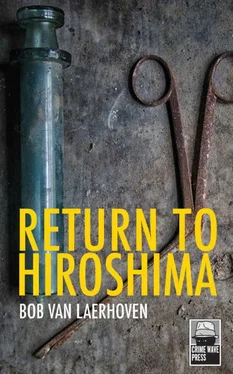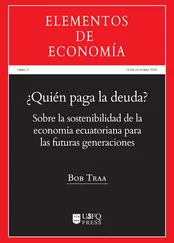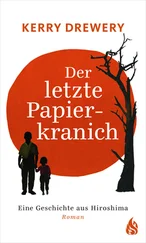My father’s mind worked like a Tibetan prayer wheel, turning high on a desolate mountain, and powered by a force he considered divine. He tried to impress on the Yuzonsha that he wanted to pioneer bold scientific innovations that would lift Japan out of the economic crisis. Coming from him, even the most megalomaniac plans and projects always seemed to make some kind of sense. But I had also read his former physician Hayashi’s medical files, which my father had kept all that time, and I knew that he was just as preoccupied with his bizarre origins, the shadowy stories about his birth, and the World War II legends he’d absorbed as a sixteen-year-old.
The pieces of the jigsaw puzzle I was patiently assembling didn’t help me see the bigger picture. I refused to accept that an intelligent man like my father, a cunning and formidable leader, believed himself to be the embodiment of the old Japanese nature spirit Rokurobei. And yet he never deviated from this conviction in conversations with me, no matter how I tried to prove its absurdity. Should I have taken this as a sign of insanity? What did that say about me? What did I see in the mirror? Just like my father, I towered over his bodyguards; my neck was abnormally long, my features crooked, my hands and feet elongated. I couldn’t hear the word “beautiful” without flinching. While his appearance gave him power and confidence, mine made me shy and miserable. I hardly ever left the island. My father often crossed over to the mainland at night, where he issued orders to loyal Yuzonsha members. He worked hard, I was neglected. His study was the nerve centre of an important part of Nippon’s invisible economy. My father saw our race’s deep desire for self-fulfilment personified in him. He liked to refer to popular myths and legends that featured heroes with exceptional powers. For all that, he still believed his worldview was rational. But I was convinced that his astonishing mind followed the unpredictable rhythm of the night – its outlines shrouded in shadow, and reeling with concealed desires.
These thoughts were milling around in my head like kites as I watched the Yuzonsha men walk up the path. Rich and powerful members of the secret brotherhood, leaders in high places in politics, industry and the army. I felt their excitement billowing towards me like fog. I thought I understood their need for these ritual meetings. As my father knew, it had its roots in an age-old tradition of men gathering around a campfire when the night stoked their deepest fears, where they would drink, sing, dance and summon spirits. This is the way it has always been, and always will be.
As a woman, I was barred from the meeting, but my father wasn’t the only one with an interest in technology. The miniature cameras I’d hidden in the assembly room were connected to my monitor. The screen filled the room with blue light, making my shadow seem long and twisted. I knew the sentence my father would use to open his speech to the assembled Yuzonsha , I had heard it often enough: “The meaning of life is to perfect it.”
When he said “to perfect” I think he meant “to conquer”.
My father wanted to create the perfect human being because it had been attempted with him – unsuccessfully.
Hiroshima – Rabu Hoteru – Inspector Takeda – night, March 13 th/14 th1995
Anarrow, inconspicuous building with smoked glass windows. Hiroshima is more discreet than Tokyo. Takeda remembers Tokyo’s extravagant love hotels from his training in the capital – grotesque medieval castles, even flying saucers. Unlike the average Japanese man, Takeda doesn’t see extramarital sex as relaxation. His colleagues boast about visiting the rabu hoteru for free, in exchange for leniency when neighbours complain about drunken punters making a racket at night, storming out, unhappy with the service. Takeda’s physical need runs deeper. He turns to prostitution for mizu shobai , the “water trade” as it used to be called, water symbolising a dream-like mental state dominated by desire and imagination. Takeda needs prostitutes to bridle his obsession with the unbearableness of existence, which, unknown to him, is deeply rooted in his youth. When he’s penetrating a whore, Takeda often pictures himself as the Japanese guard who raped his mother. He can hear her groan softly. Not too loud, he thinks to himself, it would put her life in danger. In his most embarrassing fantasies, Takeda is wearing a sword, intent on using it to decapitate the woman if the sex isn’t satisfactory. Such moments fill him with shame and sadness, but his anger and need for the fantasy are stronger than his shame. Most prostitutes are used to drunken clients and rough treatment so they keep quiet. When he comes, the half-breed policeman laments the day he was born, ashamed of his behaviour.
Takeda is shattered after a day of meetings. The spectacular poison attack on the Dai-Ichi-Kangyo bank has taken priority over all the other investigations and dozens of details and lines of inquiry are piling up, screaming for attention. His bosses want arrests. The press is already bleating about “incompetence”, “unwillingness” and “deceit”. Brash television programmes are talking about obscure paramilitary organisations set on toppling the government and restoring the emperor’s divine status. Every lead has to be followed; an impossible task for the local criminal investigation department, especially with the national security police throwing spanners in the works.
Takeda opens the door to the room he’s hired for the hour and undresses, folding his clothes carefully on a chair. The woman will be here soon. Takeda likes the love hotels’ anonymity. Two months ago, a discrete hand slipped the keys under a frosted glass window, now all you have to do is insert your cash into a machine and out pops the key with your change. Takeda lies down on the bed, aware of the tension in his body. Dealing with the National Guard liaison officers was unpleasant; men in grey suits who made no effort to hide their contempt for the metropolitan police. His colleagues claim that the Guard aren’t averse to using the old methods to force confessions, the kind used in the camps fifty years ago. Given his own past, every allusion to that period makes Takeda feel uncomfortable. He has a pile of books at home on Japan’s military history. He later developed an interest in fiction. Languages fascinate him. He still speaks Dutch, practising regularly with language CDs. Years ago, he took evening classes in English and started reading English-language comics. Later he switched to more sophisticated literature. He even read Haruki Murakami in English. The man’s amazing Hard-Boiled Wonderland and the End of the World tested Takeda’s language skills to the limit. His colleagues consider his flair for languages a curiosity. They only speak Japanese themselves, convinced it’s not in the nature of the Japanese to speak other languages. Takeda secretly hopes that his skills will get him promoted one day, although chief commissioner Takamatsu clearly has his doubts. Only that morning, his boss had poured scorn on his theory about the dead baby underneath the peace memorial. The case was closed, the incident written off as the desperate act of a young mother who had secretly given birth to a deformed child. So why was the baby embalmed? Takamatsu had grunted something about street gangs and “satanic rituals”. End of discussion. But Takeda feels there’s more to this case. Had the body been embalmed out of love or hatred? It was certainly symbolic, as police doctor Adachi had remarked dryly. At that moment, Takeda thought of his unborn half-brother, drowned in the concentration camp latrine.
Читать дальше












